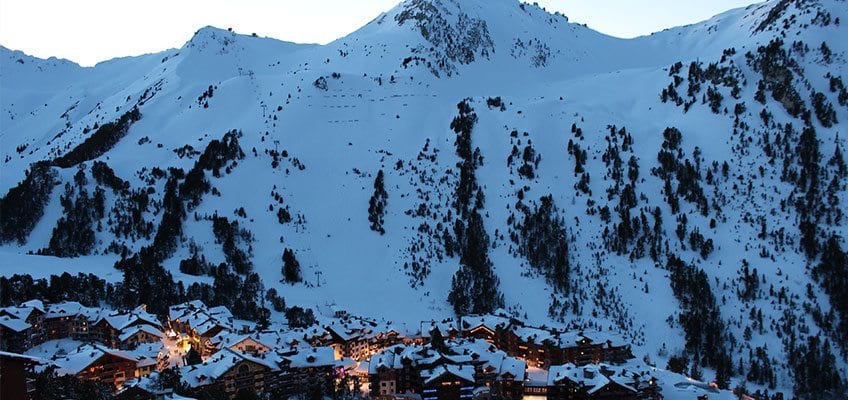The History of the Ski Chalet Holiday

Attribution: Title: Mountain Skiing | Author: Simon Lees | Licence: CC0 Public Domain
The word chalet is derived from the Latin word ‘Calittum’ meaning ‘Shelter’ or ‘Hut of a Herder’
A chalet otherwise known as Swiss chalet is native to the Alpine region of Europe. The dictionary defines a chalet as ‘A wooden dwelling with a sloping roof and widely overhanging eaves, common in Switzerland and other Alpine regions.’
Most chalets in the European Alps were originally used for seasonal farms for dairy cattle over the summer months. The herders lived in the chalet and made butter and cheese which were taken down to the low valleys along with the cattle before the beginning of winter. Over winter months the chalets were kept locked and unused. Little windowless huts known as Mazots build next to chalets were used as store rooms to keep valuable things during this period.
It is unknown who actually invented the ski chalet holiday. It was perhaps several enthusiastic people who came up with the concept. The earliest evidence can be traced back to Austrian businesswomen Erna Low , who placed a ski holiday advertisement in the London Times in 1932. The ski holiday package costs £15 which included travel to and from resort, food, accommodation, ski hire, ski tuition and a lesson in German. Even though it was ill equipped with no lifts and no safety bindings, it proved to be a massive success.
Chalet holidays in the early years cannot be compared to the luxury we enjoy today. There was shortage of hot water, bathrooms had to be shared and there was no catering. It was a huge gamble to make guests share a chalet for a week. The plus point was meeting new people, making new friends and having fun in the snow but the minus side of it was sharing a room with unpleasant guests. However, the success of the ski chalet holiday encouraged developers to build high rise apartments in the 1960s to make ski holiday more affordable.
With the introduction of apartment buildings, chalet holidays lost its competitive edge on price. However, this led to a huge change and upgrade in chalet holidays as it was now marketed with better benefits. Chalets were now equipped with private bathrooms and hot water, own cook to serve breakfast, lunch and dinner. Chalets became a new niche market as now the difference compared to the affordable ski apartments was the luxury that was on offer. This concept evolved into further upgrades such as super luxurious chalet holidays where sauna, massage, canapés and chauffeurs came as part of the whole package.
Over the years, the meaning of chalet changed and is now applied to vacation houses regardless of whether it is strictly built in the Alpine architecture or not. In France, any summer house near a ski hill is referred to as a chalet whether it is built in the style of a Swiss chalet. In Britain, the term chalet was used to refer to basic sleeping accommodation at holiday camps that were constructed around the mid-20th century.
Leave a Reply
Want to join the discussion?Feel free to contribute!